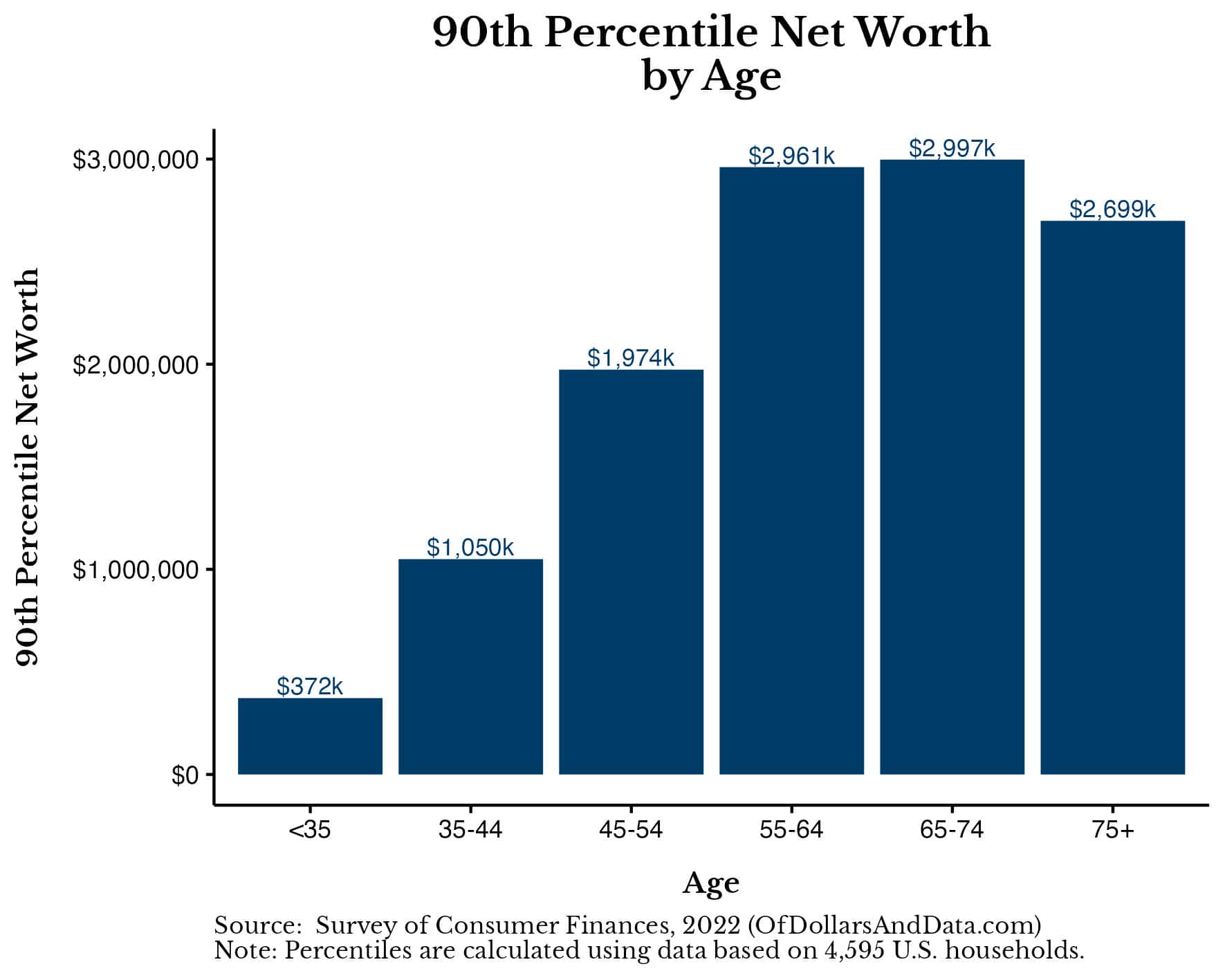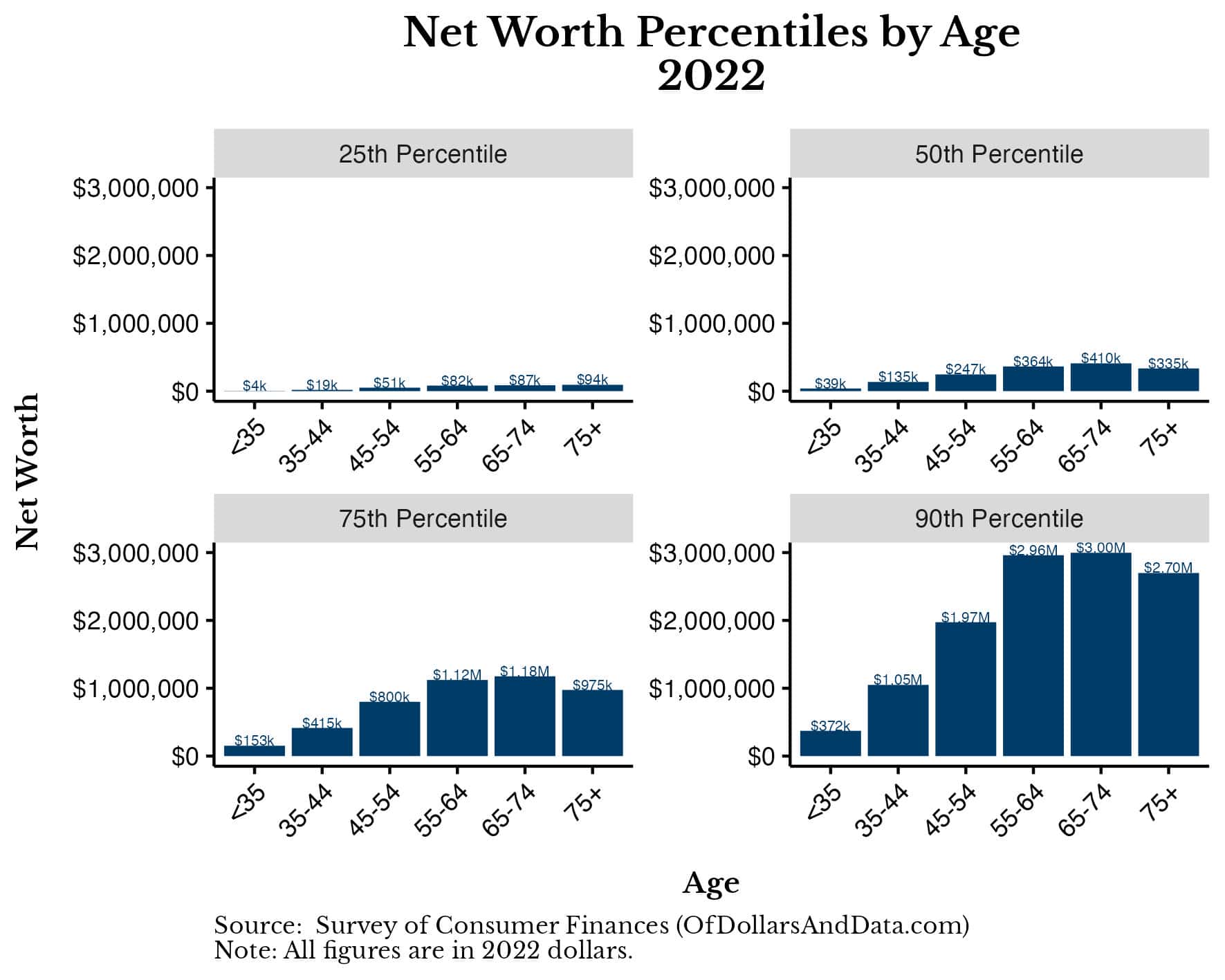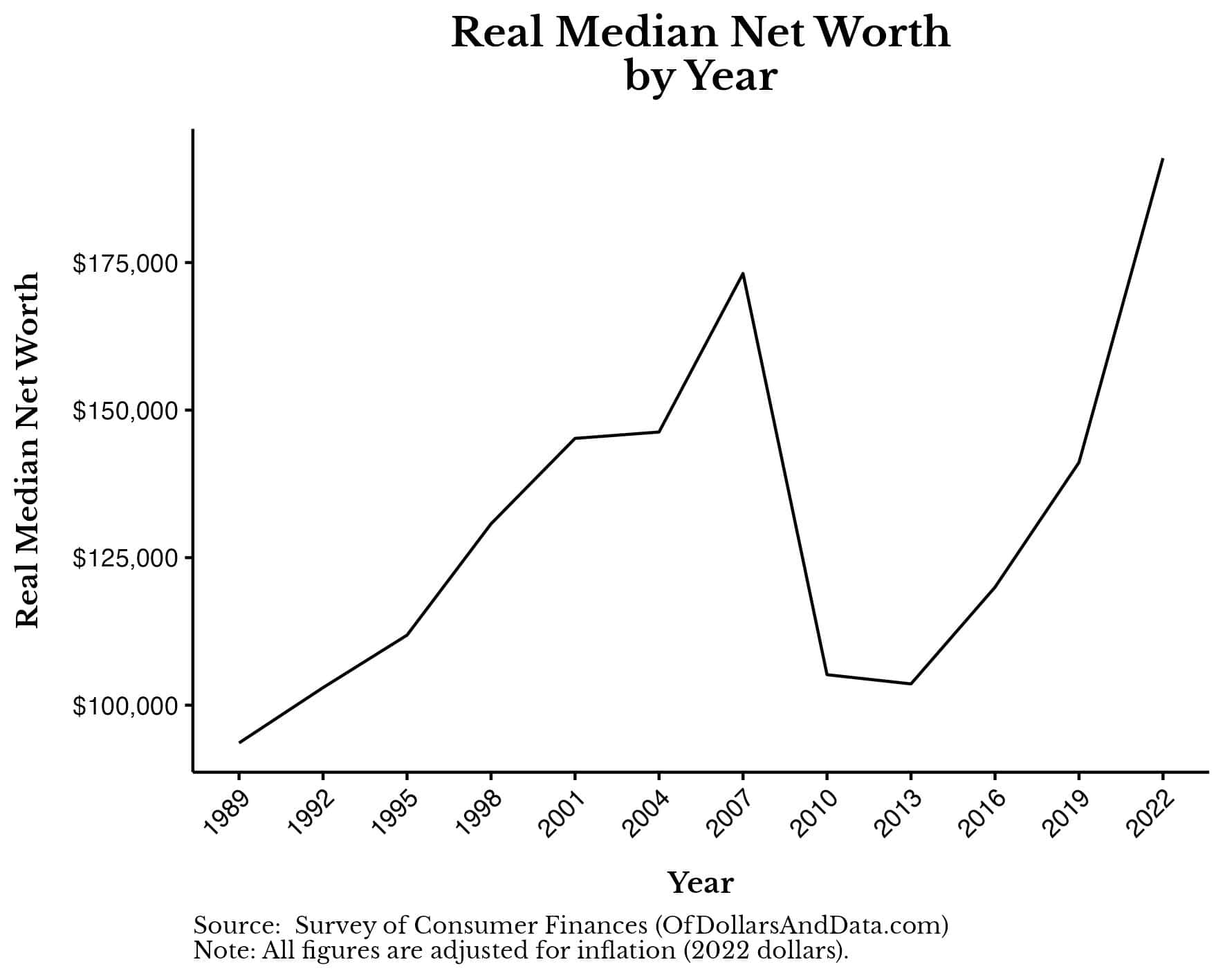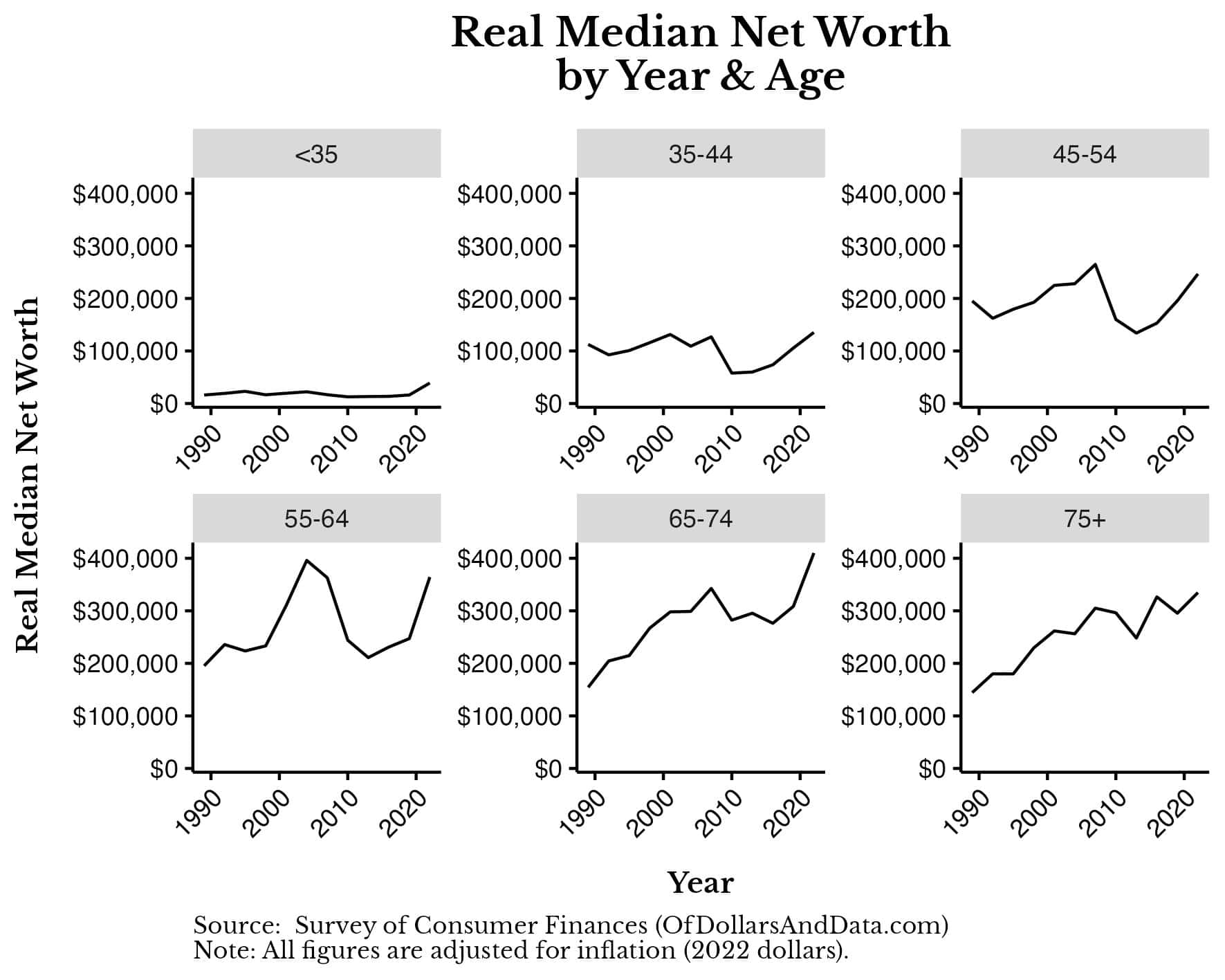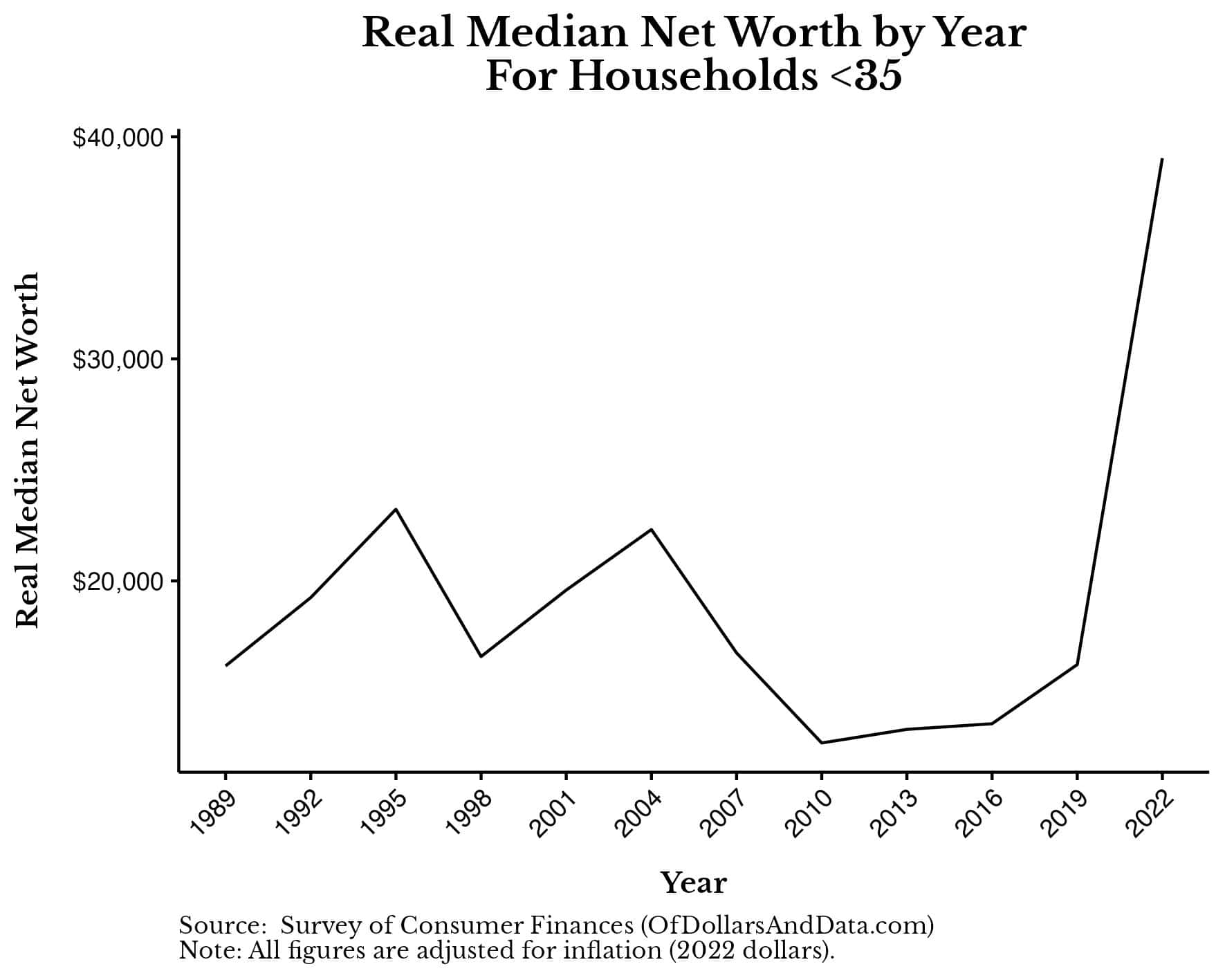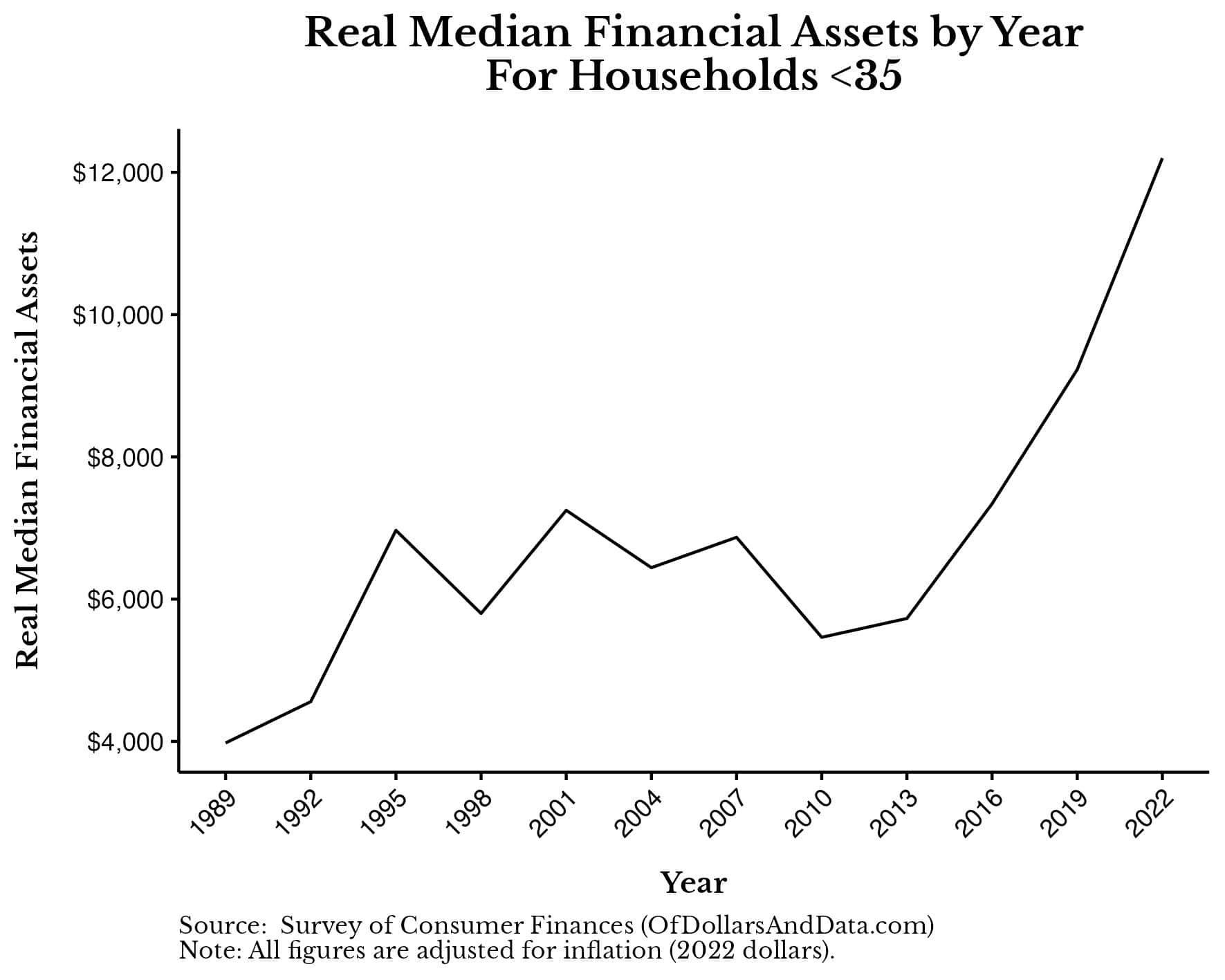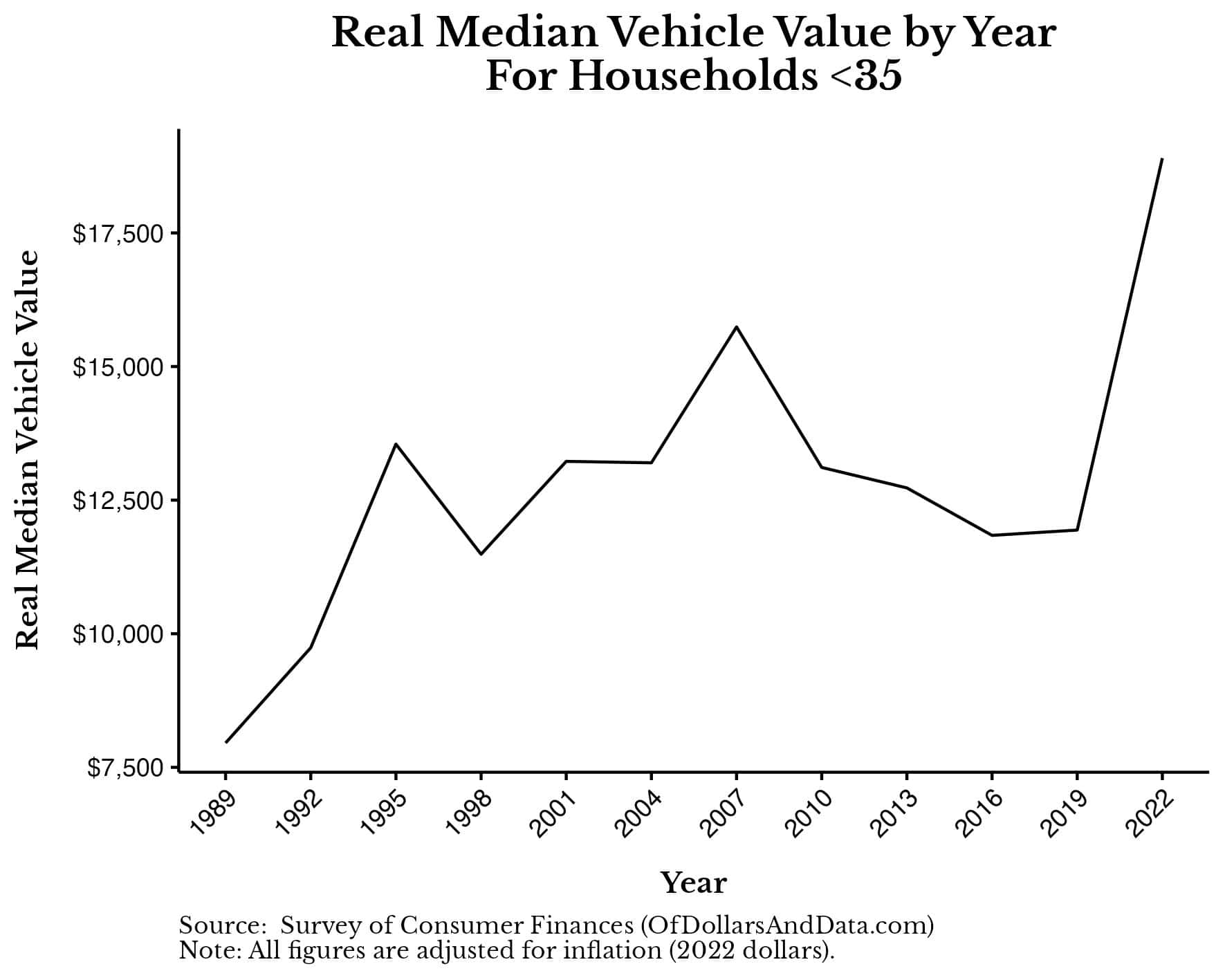Do you want to know how you are doing relative to your peers financially? Then this is the article for you.
Last week the Federal Reserve released its 2022 Survey of Consumer Finances, the gold standard of wealth data for American households. I’ve decided to take this data and calculate the average net worth by age so you can get a better handle on how you stack up financially.
Of course, we know that “comparison is the thief of joy,” but this doesn’t mean that benchmarking can’t be useful. This is especially true when it comes to benchmarking your wealth, something that is still taboo to discuss openly.
And since it isn’t discussed, most people can only infer how they are doing by looking at what people buy as a signal to their wealth. Unfortunately, this isn’t always the clearest picture of someone’s finances. This is why we must use aggregated financial data, more specifically net worth.
More importantly, this net worth data must be broken down by age for it to be useful to us. Why? Because age is positively correlated with how long you’ve worked which is positively correlated with your savings and wealth.
After all, would it be fair to compare the wealth of someone who has three decades of work experience against someone who just graduated from college? Of course not! Though that older person probably has more money, the younger person has more time (which can be used to create money). This is why comparing net worth by age is essential if we want to have a better understanding of our financial well being.
But, before we dig into the data on net worth, let’s do a quick refresher on what it shows and how to interpret it.
What is Net Worth?
Net worth is the total value of an individual’s assets minus their liabilities:
Net Worth = Assets – Liabilities
In other words, it’s everything you own (i.e. house, car, bank accounts, stocks, ETFs, rental properties, etc.) minus everything that you owe to others (i.e. credit card debt, student loan debt, mortgage, etc.).
After netting the differences, we get a financial measure that we can use to compare across households. One other thing to note is that all of the net worth figures used in this article are inflation-adjusted to 2022 dollars. This means that I am showing real dollar changes when showing any year before 2022 (later in the article). This is important because, as the data will show, net worth has grown quite substantially over the past three years even after taking into account inflation.
With that being said, let’s look at the average net worth and why this measure has its limitations.
What is the Average Net Worth (and What Are its Limitations)?
The average net worth of U.S. households in 2022 was $1,059,470. This is an inflation-adjusted increase of nearly $200,000 from the average net worth of $865,719 in 2019. If these figures seem high to you, it’s because they are. The typical American household is not walking around with $1 million in wealth.
The problem with the average net worth is that it tends to be heavily skewed by outliers (i.e. the superrich). For example, if 9 people were at a bar (all with a net worth of $100,000) and then Elon Musk walked in (whose net worth is >$200 billion), the average net worth in the bar would skyrocket to over to $20 billion! Unfortunately, this average figure would tell you basically nothing about the wealth distribution of the bar’s patrons.
To correct for this, we can use the median net worth, which is the point at which half of the households are above and half of the households are below a particular value.
So what is the median net worth of all U.S. households in 2022?
$192,700.
This is about 1/5 of the average net worth and an inflation-adjusted increase of about $50,000 since 2019 when the median net worth was $141,145.
But, once again, these figures don’t adjust for age, arguably the most crucial variable we need to control for to do a fair comparison. So, let’s do this now.
What is the Average Net Worth by Age?
After controlling for age, you can see that the average household net worth varies from as little as $183,000 to as much as $1.8M depending on where you are in life:
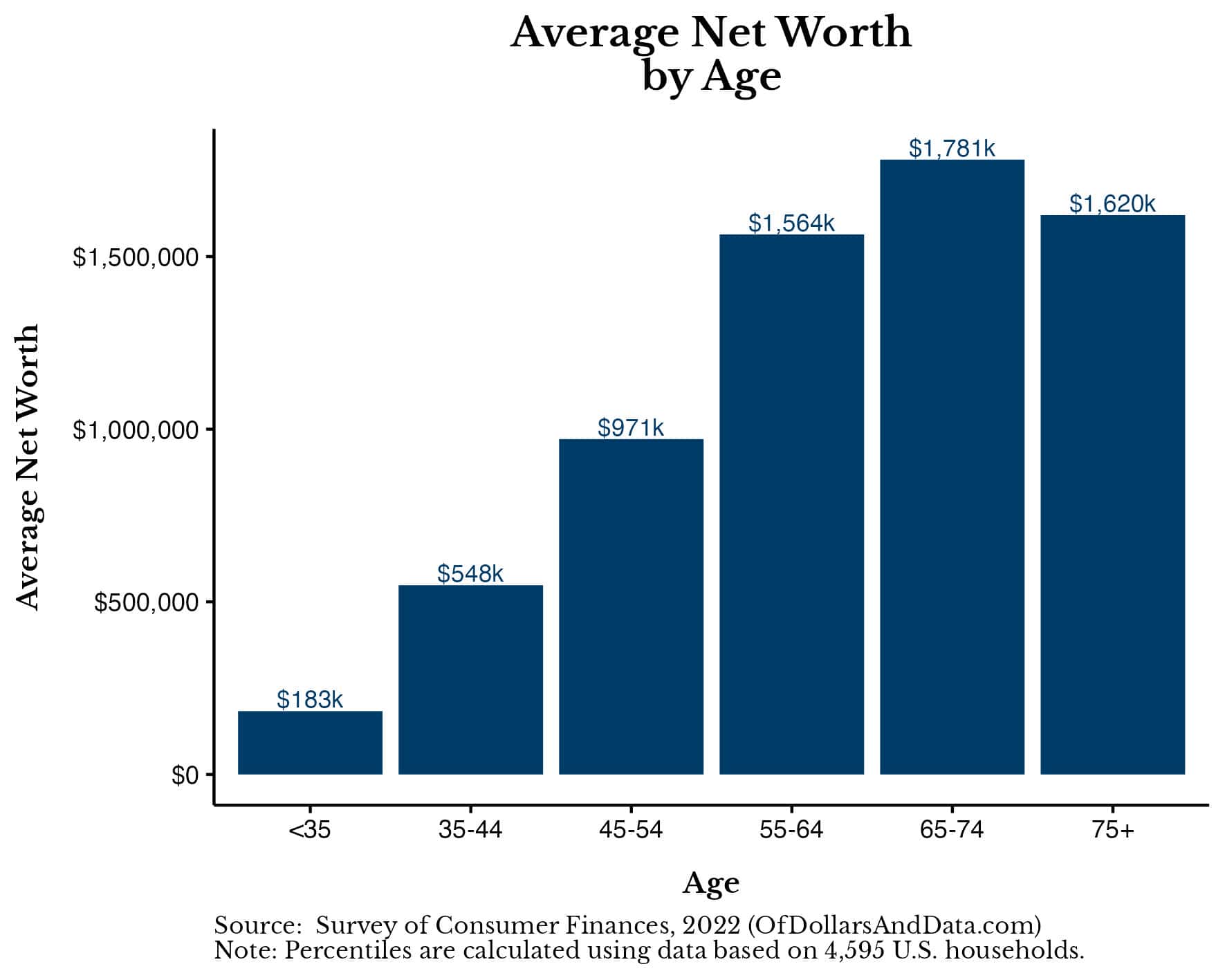
Once again, the average net worth by age tends to be skewed by the wealthiest households in each age bracket.
When we look at the median U.S. household’s net worth by age, these figures are far more relatable to the typical American:
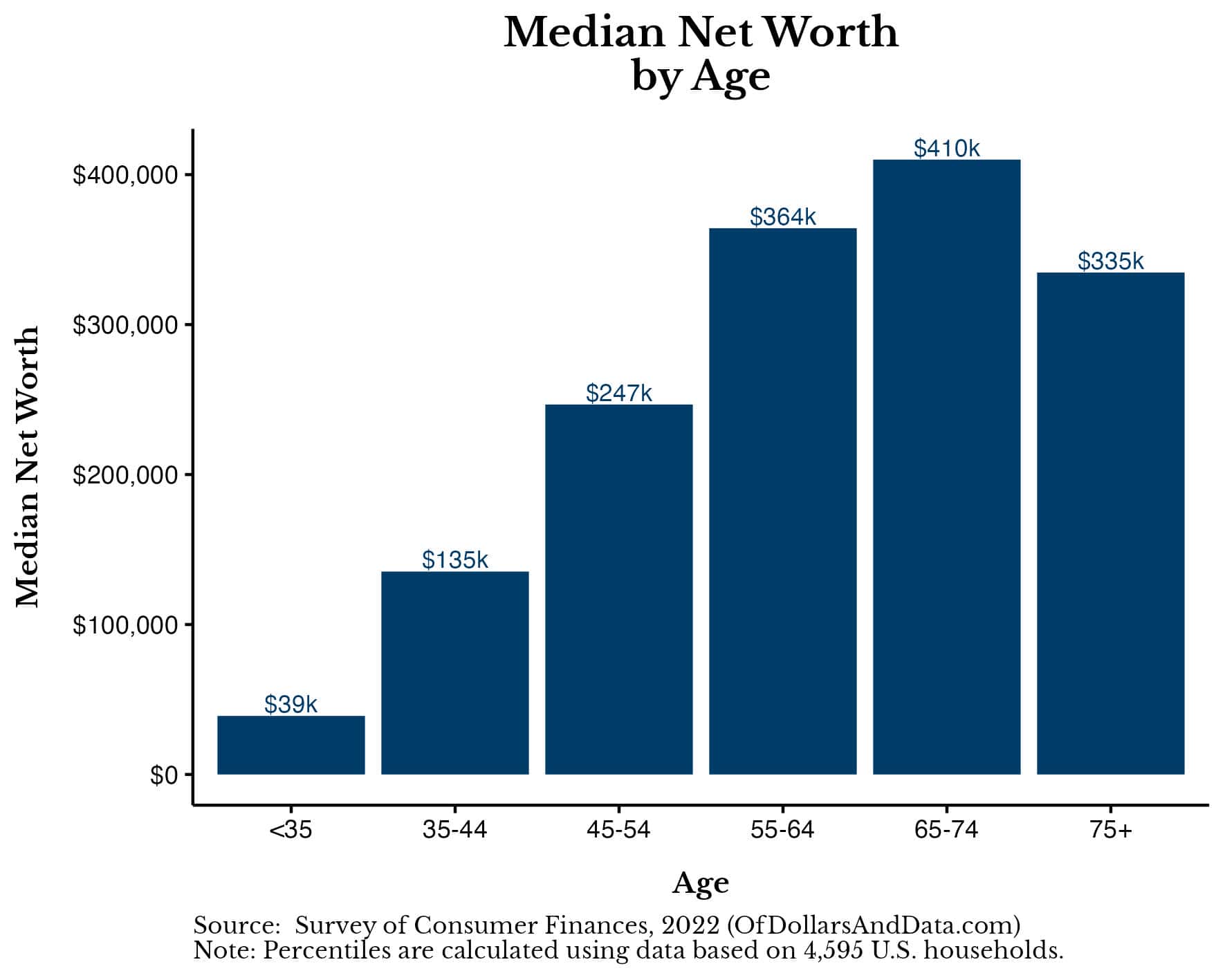
While we still see the pattern of rising net worth to age 65-74 followed by a decline afterwards, these median figures are far lower than the average net worth by age figures.
If we break this data out into even smaller age ranges, we can better see how wealth tends to change over time and where it peaks:
| Age Range | Average Net Worth | Median Net Worth |
|---|---|---|
| 20-24 | $120,896 | $10,800 |
| 25-29 | $120,185 | $30,160 |
| 30-34 | $258,073 | $89,801 |
| 35-39 | $501,289 | $141,200 |
| 40-44 | $590,718 | $134,730 |
| 45-49 | $781,923 | $212,800 |
| 50-54 | $1,132,532 | $272,800 |
| 55-59 | $1,442,075 | $320,700 |
| 60-64 | $1,675,214 | $394,010 |
| 65-69 | $1,836,884 | $394,300 |
| 70-74 | $1,714,085 | $433,100 |
| 75-80 | $1,630,969 | $316,000 |
Based on this table, household wealth tends to peak in age 65-69 (i.e. right around retirement). While there probably are some cohort effects impacting this data based on when you were born and future market performance, the fact that wealth peaks around the typical retirement age makes logical sense.
Now that we’ve looked at the average net worth by age (along with the median) let’s explore the data for those doing better or worse than the median.
What About Those Doing Worse or Better Than the Median?
The average/median can be a useful measure, but we all don’t take the same financial journey. Some of us work in fields that pay more. Some of us get inheritances. Some of us are luckier and some of us are less fortunate. You should keep these things in mind when viewing the financial situations of those outside of the norm.
To start, we will look at the 25th percentile of net worth by age:
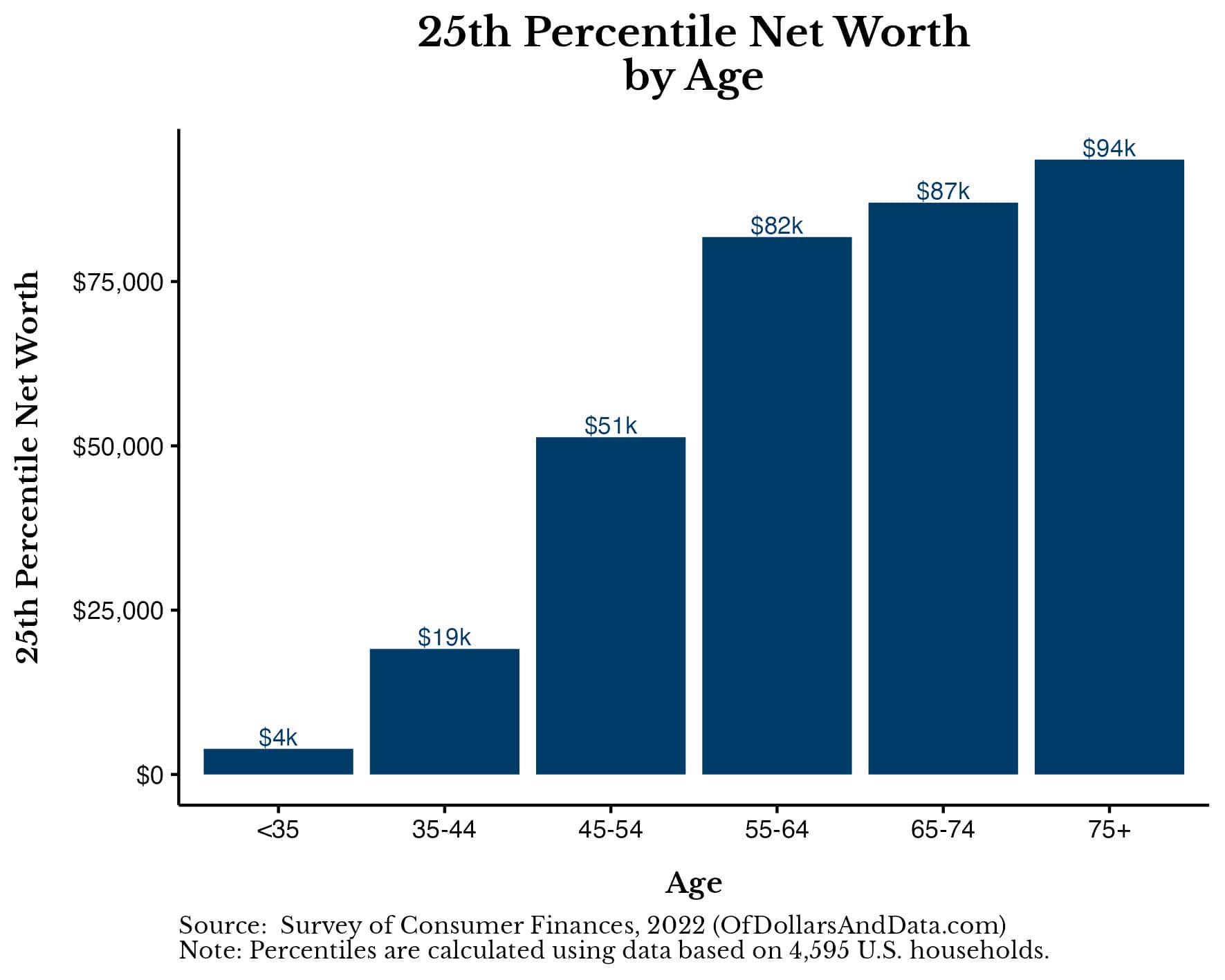
As you can see, even the households at the 25th percentile tend to have positive net worths across every age range. This is an improvement over the 2019 data which had households under 35 with a net worth near $0 at the 25th percentile.
On the flip side, there exists the 75th percentile households by net worth broken out by age:


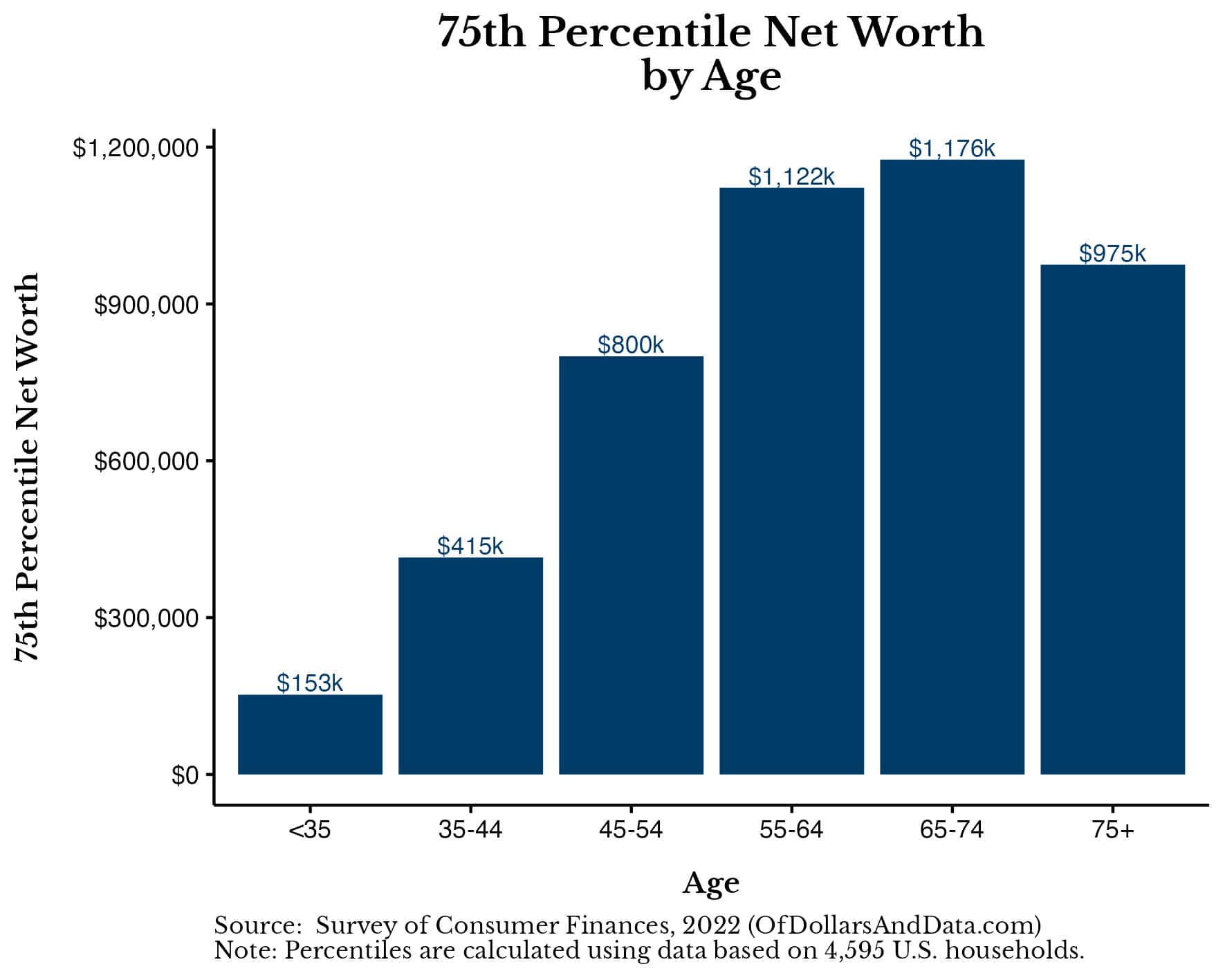 These households are doing a bit better than the median and are technically closer to the average.
These households are doing a bit better than the median and are technically closer to the average.
